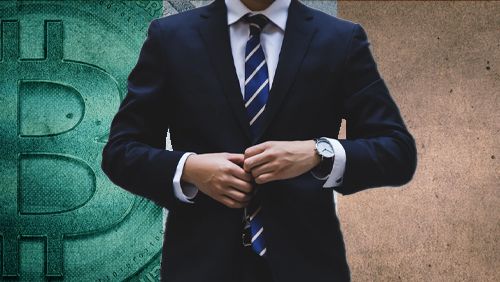For the second time in the last four years a colt by Smiling Tiger topped the Washington Thoroughbred Breeders and Owners Association’s annual summer sale, which was held Aug. 18 at the WTBOA sales pavilion located at Emerald Downs in Auburn.
Monthly Archives: August 2020
Pyledriver Makes Quick Work of Competition in Voltigeur
Royal Ascot winner Pyledriver smashed his way into the St. Leger (G1) reckoning when putting a disappointing run in the Investec Derby (G1) behind him with an emphatic victory in the Aug. 19 Sky Bet Great Voltigeur Stakes (G2).
Maximum Security the Latest Champion in Pacific Classic
The Aug. 22, $500,000 TVG Pacific Classic (G1), cut from its usual $1 million purse along with other stakes reductions in advance of fanless racing at Del Mar, attracted six entries, led by Maximum Security, Higher Power and Midcourt.
Ghaiyyath Dominates in Juddmonte International
Countless star names have subsequently flown the Godolphin flag but the latest champion of York’s most coveted prize is something different. Ghaiyyath is the brute in blue.
Moscato, Optimus Prime to Face Off in Turf Writers Cup
Moscato (GB) and Optimus Prime (FR), the 1-2 finishers of last month’s A. P. Smithwick Memorial (NSA-G1), will battle once more Aug. 20 in the $100,000 New York Turf Writers Cup (NSA-G1) at Saratoga Race Course.
"Lottery Lawyer" Jason Kurland charged with robbing jackpot winners of millions
The self-titled “Lottery Lawyer” attorney who advised dozens of significant jackpot winners across the country is now being charged by New York federal prosecutors for stealing millions of dollars from his clients.Insider Buzz, Legal, Law Enforcement, Fraud, Crime

Phumelela ‘business rescue plan’ mulls sale of race betting ops
South African race and sports betting operator Phumelela Gaming & Leisure plans to sell its horseracing business as part of the bankrupt company’s financial rescue plan.
On Wednesday, Phumelela published its official business rescue proposal, which aims to pull the struggling company out of the financial hole that led to its filing for bankruptcy protection in May. The company endured the “worst year” in its 22-year history following regulatory changes that eliminates its share of betting winning levies in Gauteng province, a situation that worsened when COVID-19 shut down racing both locally and around the world.
The most dramatic elements of Phumelela’s plan include the sale of “the Horse Racing Business and assets” (which include four South African racetracks), the company’s retail and online race and sports betting subsidiary Betting World, and Phumelela Gold International, the company’s share of the Premier Gateway International joint venture with Australian bookmakers Tabcorp.
Phumelela claims to have secured deals to sell the above assets, but didn’t identify the purchaser. Earlier this month, reports circulated that UK bookmaker Betfred, which has a lengthy history of race betting involvement, was the likely buyer. Betfred has yet to comment on these reports.
NY Regulators Seek to Locate Fire Station at Saratoga
New York State regulators, raising concerns about major fires over the decades at racetracks around the United States, have advanced a plan to locate a fire station on the grounds of the Saratoga Race Course.
Wanamaker's August Catalog Includes Stakes-Placed Mania
Wanamaker’s online August sale has drawn 22 entries. The catalog is highlighted by recent second-place finisher in the Runhappy Debutante Stakes at Ellis Park, Mania, and Entirely, a stakes-winning mare in foal to Constitution.

Brazil’s president signs sports betting ‘privatization’ decree
Brazil’s sports betting plans took a major step forward this week as the country’s president formally designated government agencies to oversee the launch of fixed-odds sports betting.
On Tuesday, President Jair Bolsonaro signed Decree No. 10,467, which designates the National Bank for Economic and Social Development (BNDES) and the Ministry of Economy as responsible for realizing the sports betting legislation approved by Brazil’s former president in December 2018.
The decree includes sports betting in the country’s Investment Partnership Program (PPI) that will allow private operators to offer wagering to local bettors. The move follows the government’s efforts to privatize management of the LOTEX instant win lottery business.
The BNDES will be responsible for “executing and monitoring the privatization process” while the Ministry of Economy will responsible for “coordinating and monitoring the privatization referred to in the caput [the introduction to the betting legislation], as well as for approving the studies, projects, surveys or investigations necessary for the effectiveness of the referred privatization.”

Ireland signs on to AMLD5: What it means for digital currencies
The European Union is taking money laundering in the digital space seriously, having issued its Fifth Anti-Money Laundering Directive (AMLD5) for member states to follow on July 9, 2018. Ireland has now adopted the directive, making them more compliant to the AMLD5 than they were to the AMLD4, and providing a clear signal that criminal activity in the digital currency space won’t be tolerated.
The Cabinet of Ireland gave their approval to a bill transposing the guidelines of the AMLD5 into their national law. This effectively puts digital currency businesses at the same level of regulation as banks and other financial institutions, making criminal activity through digital currency harder to pursue.
Ireland’s Minister for Justice and Equality, Helen McEntee gave her approval for the new Money Laundering and Terrorist Financing (Amendment) (EU Exit) Regulations 2020:
“The reality is that money laundering is a crime that helps serious criminals and terrorists to function, destroying lives in the process. Criminals seek to exploit the EU’s open borders, and EU-wide measures are vital for that reason.”

“Time crystals” could revolutionize quantum computing
Quantum computing has long been thought to be a myth, an unobtainable goal, to oversimplify things, in the processing power of computers. Reaching the level of computational ability afforded by quantum computing could help completely change, by orders of magnitude, how scientific and medical discoveries are made, as well as lead to the creation of better financial strategies and high-efficient materials. Unfortunately, however, with the belief that quantum computing isn’t possible, it has always been a pipedream – until now. The answer may lie in the inner workings of “time crystals.”
Google tried to assert last year that it had figured out quantum computing, but the jury is still out on whether or not it can legitimately make that claim. In the meantime, physicists have been working to understand time crystals, a type of matter that was only recently discovered. It was first theorized in 2012 by Frank Wilczek, a Nobel Laureate and professor at the Massachusetts Institute of Technology (MIT), and confirmed in 2016, and a group of physicists believe they have unlocked the key.
As explained by Samulu Autti, a Lancaster University research associate, time crystals are constantly in motion and don’t require any outside force to maintain that motion. He told Inverse, “Conceptually a time crystal is a very simple thing: It is a substance where the constituent particles are in constant, systematically repeating motion even in the absence of any external encouragement. This is very unusual in nature.”
The time crystals have a number of traits that would make them beneficial for quantum computing, from maintaining a tight cohesion not impacted by exterior stimuli, to reducing the necessity of massive amounts of cooling to keep them functioning properly. The physicists behind the project were able to reach their conclusions following numerous tests using copper tubing, helium isotopes and vacuums. The result was the generation of two clouds comprised of constantly rotating magnetic particles so small that they can’t be seen with the naked eye. However, they emit a type of signal that can be measured, and which confirms their existence, as well as the number of particles they include.

5 Beginner tips to crafting an effective email
Email can be a wonderful communication tool when its used right. You can pound one out in just a few minutes, convey a meaningful and important message, and reach your audience almost instantly, allowing them to start getting things done.
But it can also be a huge time sink on your own productivity, create huge problems in the office and generally not be the wonder tool so many hope it could be. The smallest, innocent email can cause disaster if you don’t know what you’re doing, so learning how to craft an effective email is important.
Today, we’ll walk through five important aspects you want to make sure you get right when you craft that next email, and what could happen if you don’t.
Step 1: Who’s your audience?
Next NBA Draft Combine could go regional
The NBA has already faced – quite successfully – a number of challenges this year because of the coronavirus pandemic. After the season was suddenly halted as it entered its second half this past March, it was able to figure out an alternative to the NBA Finals, moving the top teams to Disney World in Orlando, Florida to play in what has affectionately become known as the NBA Bubble. The plan worked, and the remaining teams are now in the playoffs as they compete to see who will be the best team of this odd, 2019-20 season. If the LA Lakers keep going the way they have been, they’ll be eliminated quickly, but that’s a topic for another day. Now, it’s time to focus on other changes the NBA has to make in order to prepare for the future and allow up-and-coming stars to leave their mark on the world’s basketball league.
The NBA Draft Lottery will be held tomorrow, adopting a virtual format similar to that used for the NFL Draft. Team representatives will participate in a large Zoom call, bringing together 14 teams that need the most help in the upcoming season. They include the Atlanta Hawks, the Charlotte Hornets, the Chicago Bulls, the Cleveland Cavaliers, the Detroit Pistons, the Golden State Warriors, the Memphis Grizzlies, the Minnesota Timberwolves, the New Orleans Pelicans, the New York Knicks, the Phoenix Suns, the Sacramento Kings, the San Antonio Spurs and the Washington Wizards.
Sports gambling fans can even place bets on who will win the lottery. Following the lottery, the NBA Draft is expected to be held on October 16 – most likely, it will be virtual, as well. Where and at what time the draft will take place hasn’t been released.
In addition to the virtual draft lottery and a potential virtual draft, there is also another first for the NBA this year. It could be considering changes to how it runs the NBA Combine, an opportunity for second-round players to show off their talents and grab attention from teams and scouts. The details haven’t been completely worked out yet, but the idea is, instead of grouping all the players together at one facility, there could be regional Combines established, reducing the risk of spreading COVID-19.

Indian authorities fear spy campaign from Chinese gambling apps
While China cracks down on inter-state gambling by its own citizens, they may be using gambling firms to spy on rival nations. That’s the suggestion by an Indian security agency, who’ve tied increased gambling activity to recent frictions with their neighbor.
The Indian Times reports local police authorities think Chinese gambling firms may be using their apps to help phish information during times of friction. “There are many angles, including clandestinely accessing gamers’ personal information,” Hyderabad police told the outlet. “The possibility of gamers’ personal data being exported abroad cannot be ruled out.”
This possibility became hard to ignore after recent border skirmishes between the two nations. In June, 20 Indian troops were killed in a clash over the Himalayan border area after Chinese troops claimed they crossed the border. No bullets were fired, and the Indian troops were alleged to have been beaten to death with sticks and clubs.
Around that same time, authorities believe Chinese gambling firms became more aggressive in advertising to Indians.

Indian authorities fear spy campaign from Chinese gambling apps
While China cracks down on inter-state gambling by its own citizens, they may be using gambling firms to spy on rival nations. That’s the suggestion by an Indian security agency, who’ve tied increased gambling activity to recent frictions with their neighbor.
The Indian Times reports local police authorities think Chinese gambling firms may be using their apps to help phish information during times of friction. “There are many angles, including clandestinely accessing gamers’ personal information,” Hyderabad police told the outlet. “The possibility of gamers’ personal data being exported abroad cannot be ruled out.”
This possibility became hard to ignore after recent border skirmishes between the two nations. In June, 20 Indian troops were killed in a clash over the Himalayan border area after Chinese troops claimed they crossed the border. No bullets were fired, and the Indian troops were alleged to have been beaten to death with sticks and clubs.
Around that same time, authorities believe Chinese gambling firms became more aggressive in advertising to Indians.

Argentina steps closer to online sports gambling
If Argentina’s city of Buenos Aires gets its way, the Casino de Puerto Madero will soon have a sports gambling license. The city’s government is pushing a plan that would allow the casino to launch an online sportsbook as a means to recuperate revenue lost due to the coronavirus pandemic. However, some lawmakers are looking to stop the project from moving forward, arguing that the casino’s ties to a controversial figure would be a black spot on the country’s gambling industry.
Argentina has had a difficult time grappling with the subject of online and sports gambling. Buenos Aires was ready to issue licenses this past February, but retail operators stepped in to subvert those plans. Still, Buenos Aires pushed forward, fueled by the necessity to find new sources of revenue in the wake of the COVID-19 debacle. According to some reports, the city could earn as much as $6.8 million in tax revenue by launching legalized sports gambling.
For the city to be able to give Casino de Puerto Madero a license to operate a sportsbook, lawmakers are pushing Buenos Aires to ensure it adheres to federal guidelines. These include the payment of an “administrative tax” of $30,000 and proof of net worth of at least $25 million. In most cases, operators will also have to show they have been involved with the gaming sector for a minimum of two years.
The ruling government party in Buenos Aires, the Juntos por el Cambio (Together for Change), supports giving the casino a license; however, some local lawmakers are trying to put additional conditions on the deal. Cristóbal López, the former owner of the casino, is not a popular person with certain legislators, and they want to ensure that he has no ability to get involved with online gambling of any kind. López has been mired in controversy for the past several years, alleged to have ties to money laundering and claims of collusion. He has also faced scrutiny for dealings in Brazil, where he was able to purchase an oil refinery at 28% less than its original value.

Argentina steps closer to online sports gambling
If Argentina’s city of Buenos Aires gets its way, the Casino de Puerto Madero will soon have a sports gambling license. The city’s government is pushing a plan that would allow the casino to launch an online sportsbook as a means to recuperate revenue lost due to the coronavirus pandemic. However, some lawmakers are looking to stop the project from moving forward, arguing that the casino’s ties to a controversial figure would be a black spot on the country’s gambling industry.
Argentina has had a difficult time grappling with the subject of online and sports gambling. Buenos Aires was ready to issue licenses this past February, but retail operators stepped in to subvert those plans. Still, Buenos Aires pushed forward, fueled by the necessity to find new sources of revenue in the wake of the COVID-19 debacle. According to some reports, the city could earn as much as $6.8 million in tax revenue by launching legalized sports gambling.
For the city to be able to give Casino de Puerto Madero a license to operate a sportsbook, lawmakers are pushing Buenos Aires to ensure it adheres to federal guidelines. These include the payment of an “administrative tax” of $30,000 and proof of net worth of at least $25 million. In most cases, operators will also have to show they have been involved with the gaming sector for a minimum of two years.
The ruling government party in Buenos Aires, the Juntos por el Cambio (Together for Change), supports giving the casino a license; however, some local lawmakers are trying to put additional conditions on the deal. Cristóbal López, the former owner of the casino, is not a popular person with certain legislators, and they want to ensure that he has no ability to get involved with online gambling of any kind. López has been mired in controversy for the past several years, alleged to have ties to money laundering and claims of collusion. He has also faced scrutiny for dealings in Brazil, where he was able to purchase an oil refinery at 28% less than its original value.

Las Vegas could be the intersection of Covid-19 transmission
Las Vegas casinos reopened on June 4, and they’ve made it a priority to keep customers safe so as to avoid another shutdown by Governor Steve Sisolak. But if those procedures are lacking in any way, ProPublica warns that it could ignite a new spread of Covid-19 throughout the U.S.
The non-profit news outlet commissioned a study by X-Mode and Tectonix to analyze smartphone travel habits of visitors to the Las Vegas Strip during a weekend in July. They used the geo location data of fitness and weather apps to follow where the users travel next, and possibly contact trace where Covid-19 could spread, had they caught the virus in Nevada.
Over a four day period, the study followed 26,000 devices in the city. They then found that within the four day period, visitors returned to every state in the Continental U.S. except Maine.
“People have been highly mobile, and as a result, it makes sense why we see the continuation of the surge,” said Oscar Alleyne, an epidemiologist and chief program officer with the National Association of County and City Health Officials. He suggested that the continued travel of Americans is part of why the pandemic has been so bad in the country.

Wynn Resorts warns WeChat ban will be bad for business
Macau casino resorts spent most of 2019 seeing declining revenues due to the U.S.-China trade war. 2020 is far worse by comparison, thanks to the pandemic, but Wynn Resorts warns the trade war is still a looming threat to their future business.
In a filing with the Hong Kong Stock Exchange, Wynn cautioned that President Donald Trump’s executive order which, which prevents U.S. companies from using WeChat could impact their Macau operations. “We are unable to ascertain the scope of the ban at this point and there is no assurance that the ban will not adversely affect our ability to communicate with certain of our customers,” it said.
Previously, experts warned that this might be the case. WeChat is the communication and payment tool of choice for many Mainland Chinese visitors to Macau. If the American operators in Macau, namely Wynn Resorts, MGM Resorts and the Sands, don’t have access to WeChat, their customers may start ghosting them and visit Melco Resorts, SJM Holdings, and Galaxy instead.
Along those lines, Wynn offered some advice to the big political players involved here, and pretty much told them to knock it off before they ruin global trade for everyone: